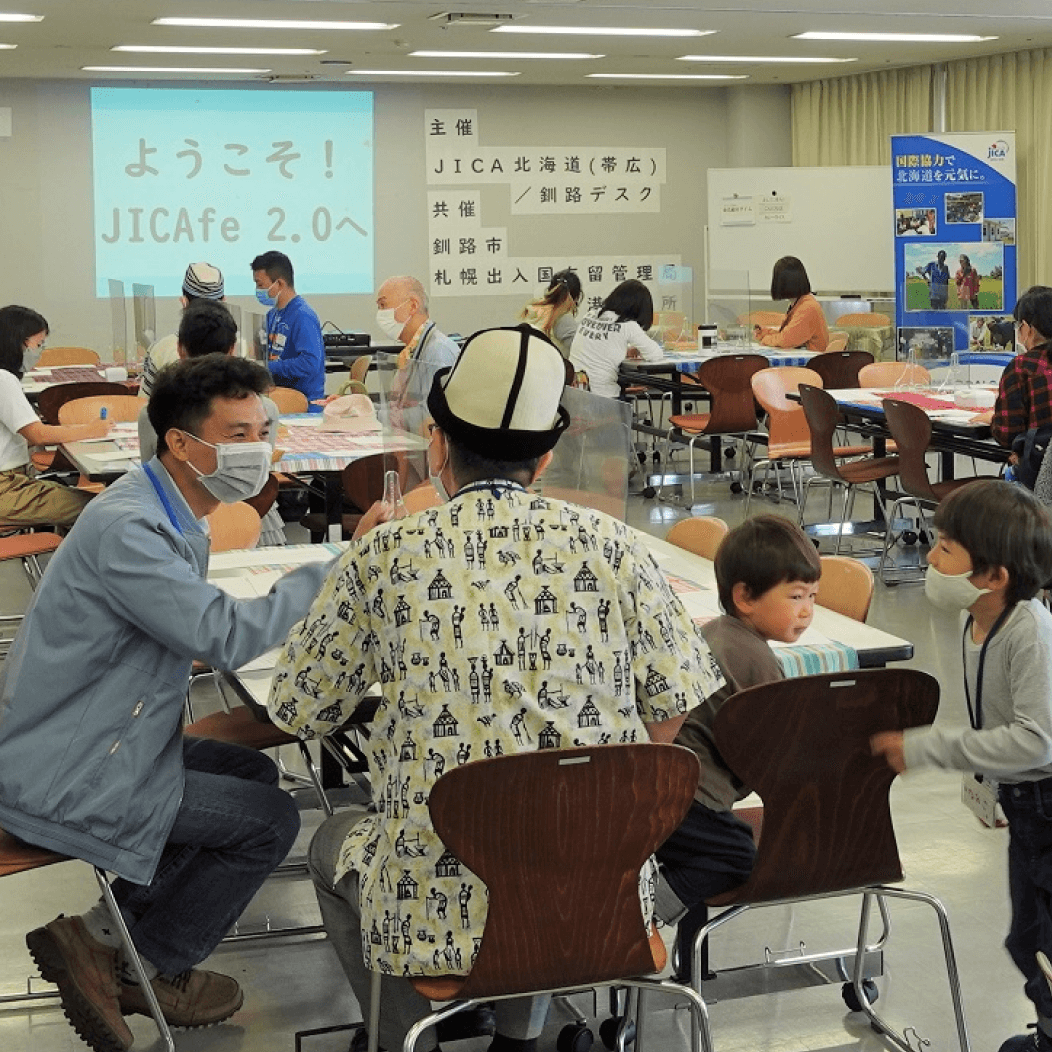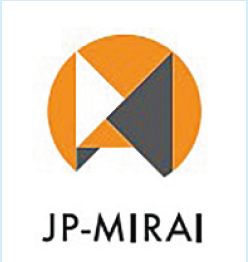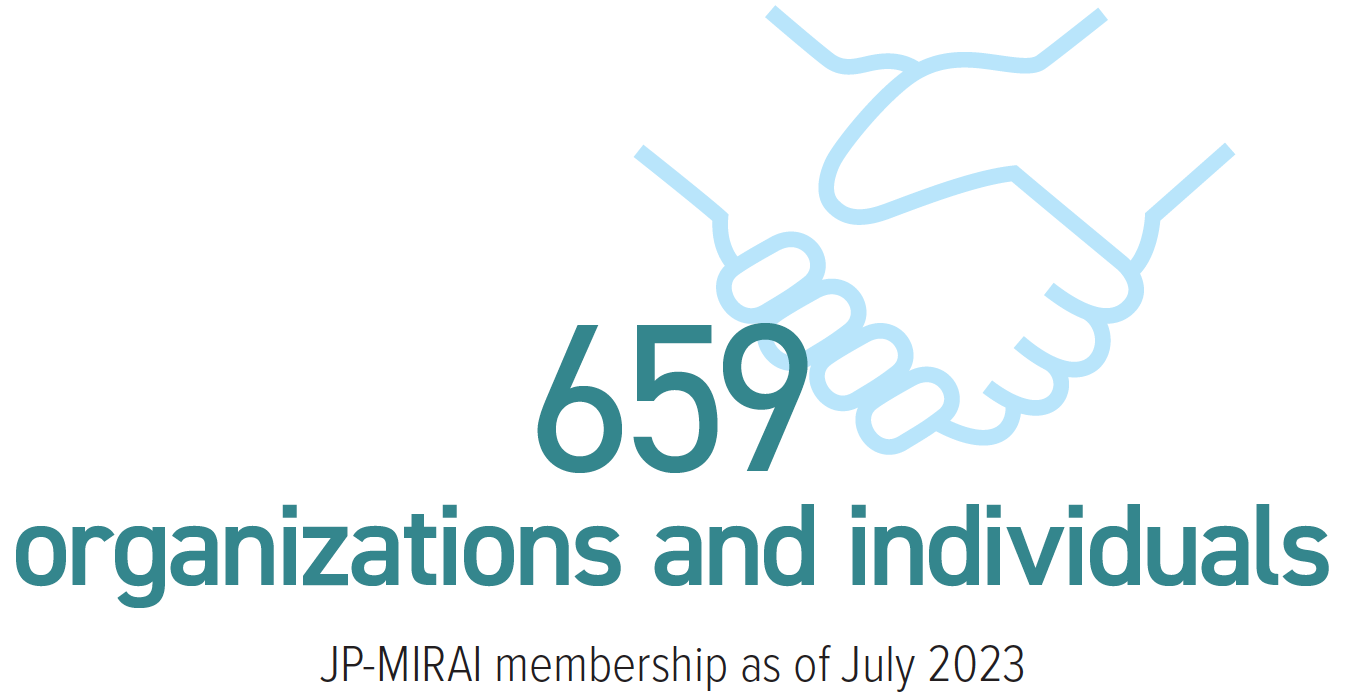
Partnerships
Support for the Acceptance of Foreign HRs / Multicultural and Inclusive Society
Achieving a Prosperous Society Where We Live Together

Partnerships
Support for the Acceptance of Foreign HRs /
Multicultural and Inclusive Society
Achieving a Prosperous Society Where We Live Together
Over the past ten years, the number of foreign workers in Japan has increased by a factor of about 2.7, reaching around 1.82 million.*1 Many are from developing countries, and they play important roles in the economic growth of their home countries, for instance through their remittances. For steady economic growth, it is estimated that Japan will need 6.74 million foreign workers, or nearly four times its current number, in 20 years.*2 Foreign human resources (HRs) are needed as a new player in socioeconomic development and regional revitalization in Japan.
To address challenges foreign workers face in Japan, JICA works on a number of aspects where it can leverage its strengths. These include building an inclusive society that coexists with them, human resources development (HRD) for economic growth in both their countries of origin and Japan, and the protection of their human rights.
Building a multicultural and inclusive society with foreign HRs
JICA has coordinators for international cooperation at local governments and international associations as well as in its own domestic offices. Their mission is to collaborate with local governments and other entities to resolve issues that local communities face in relation to the acceptance of foreign HRs and multicultural coexistence. In the Kushiro-Nemuro region in Hokkaido, JICA and stakeholders are collaborating for the establishment of a local platform to support the acceptance of foreign workers and build a more culturally diverse and inclusive community. They leverage their own strengths to, for example, organize social events open to residents of foreign nationalities.
HRD for economic development
JICA provides support to people planning to work in Japan. JICA provides accurate information on daily life and the business environment in Japan through, among other channels, Japan Centers for Human Resources Development in partner countries.*3 These centers are increasingly working with the ministries, local governments, and other entities in Japan to organize events such as career seminars for highly skilled professionals, meetings to exchange views with former international scholars who studied in Japan, and job fairs.
Promotion of the human rights of migrant workers
In January 2023, JICA and the International Labor Organization (ILO) signed a Memorandum of Cooperation (MOC) to promote business and human rights, a concept designed to prevent human rights violations caused by business activities. Based on the MOC, JICA and the ILO are collaboratively working on business and human rights while sharing expertise and insights. JICA is also working on the protection of workers through improving governance of relevant public-sector organizations. As one such initiative, JICA invites public officials in developing countries who are in charge of issues related to migrant workers and returnees to trainings in Japan on labor policies designed to ensure decent work for all.
*1 Source: Ministry of Health, Labour and Welfare, “Situation of Notified Foreign
National Employment Status” (as of the end of October 2022).
*2 JICA Ogata Research Institute for Peace and Development, study on
“Diversity and Social Inclusion of Migrant Workers in Japanese Society—
Our World in 2030/40” (conducted in fiscal 2021).
*3 Japan Centers for Human Resources Development (known as Japan Centers)
were established to help the Southeast Asia and East and Central Asia
regions move to market economies. JICA assists in developing these centers
as an exchange hub (platform) for Japan and the respective countries.

JP-MIRAI: Japan Platform for Migrant Workers towards Responsible and Inclusive Society
Promoting efforts at improving the environment to accept migrant workers in Japan
JP-MIRAI is a platform established in November 2020 in collaboration with various stakeholders, including private-sector firms, local governments, NPOs, academics, attorneys, and JICA to address challenges foreign workers face in Japan. The current membership stands at 659 organizations and individuals.*4
JP-MIRAI provides migrant workers with accurate and useful information on daily life and employment in Japan via the app and portal site in nine languages. It opened in 2022 and now has 2,225 registrants.*4 In May 2022, JP-MIRAI started a consultation service called “JP-MIRAI Assist.” It offers advice on issues in labor, residential status, and daily-life in nine languages. About 1,100 contacts*4 have been made in this service.
*4 Figures as of July 2023.


